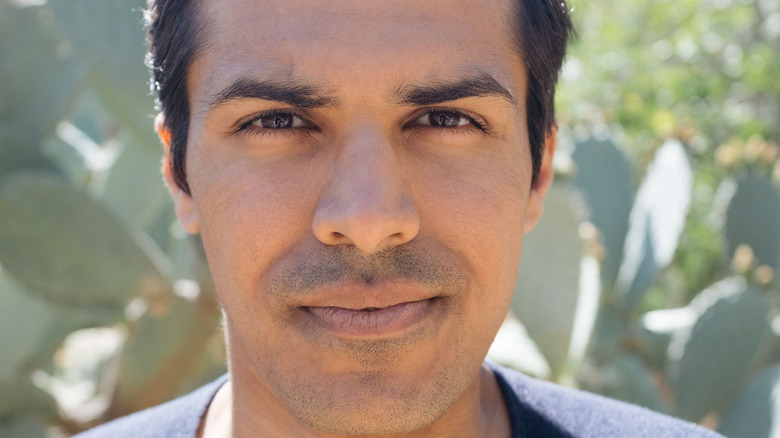Raja Dhir, Co-Founder Of Seed Health, Shares How To Support Your Gut And Mental Health - Exclusive
Has your stomach ever felt queasy before a date or big job interview? That is because your gut and brain are connected — literally. The stress or pressure of an important event can cause your stomach to be upset. The stomach and brain are connected through biological communication pathways, which is often referred to as the gut-brain connection, or the gut-brain axis.
This explains how your thoughts and emotions can affect your gut – anxiety, fear, grief, sadness, and more can all impact the gut, leading to a wide variety of gastrointestinal symptoms (via Harvard Health).
"The gut-brain axis is a bidirectional line of communication, meaning that gut health impacts brain health, and vice versa," says Raja Dhir, co-founder and co-CEO of Seed Health, a microbiome science company. Dhir leads environmental research and academic collaborations with a focus on the gut microbiome. We sat down with Raja Dhir in an exclusive interview to discuss how the gut and brain are connected, and what steps you can take to support your gut and mental health.
The gut-brain connection and diet
The gut and brain talk through various communication pathways in the body, including the vagus nerve — one of the longest nerves in the human body — as well as organic acids, proteins, fats, and neurotransmitters. "Insights into this gut-brain crosstalk have revealed a dynamic communication system that not only influences intestinal activities like digestion and motility, but also regulates immune and pain response, metabolism, mood, social behavior, and cognition," says Dhir. Scientific studies have confirmed that the gut microbiome can cause changes in mood and behavior, and mental health can affect the gut.
How can you improve your gut and mental health? "Diet and nutrition are one of the foremost ways we can support the gut microbiome, and in turn, the gut-brain connection," says Dhir. "There is no one-size-fits-all, 'perfect' diet."
That being said, Dhir recommends a plant-based diet that is low in sugar, preservatives, processed foods, additives, and saturated fats. Focus on eating a wide variety of plants and foods high in polyphenols, like vegetables, walnuts, pomegranate, berries, and green tea.
In addition, foods that have been shown to support a healthy microbiome are those high in fiber and microbiota-accessible carbohydrates like broccoli, brussels sprouts, beans, and sweet potatoes, as well as foods high in omega-3 and monounsaturated fat like salmon, sardines, avocados, and olive oil.
Supporting the gut microbiome
Another way to naturally support your gut health could be with probiotics, which are live microorganisms that can help improve your microbiome. They can be found in foods such as yogurt and sauerkraut, as well as supplements (via Mayo Clinic). "While research into the gut-brain axis shows a lot of promise, it's also important to acknowledge that this is a relatively new field of study and probiotic applications for neurological and mood disorders are still being studied," states Dhir. Talk with your doctor to see if probiotics are right for you.
Dhir also recommends prioritizing restful sleep to help naturally support both gut and brain health. "Microbes follow their own circadian rhythms and require rest to stay in balance. Evidence shows that sleep patterns can affect the microbiome and the gut-brain connection," he says. Regular exercise is also important — not only does movement help manage stress, but it can balance the gut-brain connection, too.
"Our modern living practices and daily choices — such as more time spent indoors (and away from natural environments), poor diet, lack of fiber, antibiotic overuse, and other environmental factors — can disrupt the microbiome," shares Dhir. Being mindful of all of these lifestyle decisions can help create equilibrium in your mind and body.
Seed Health is working toward advancements in gut-brain research, which present the potential to impact well-being in areas like anxiety, depression, and stress response, reimagining ways to approach mental health.



